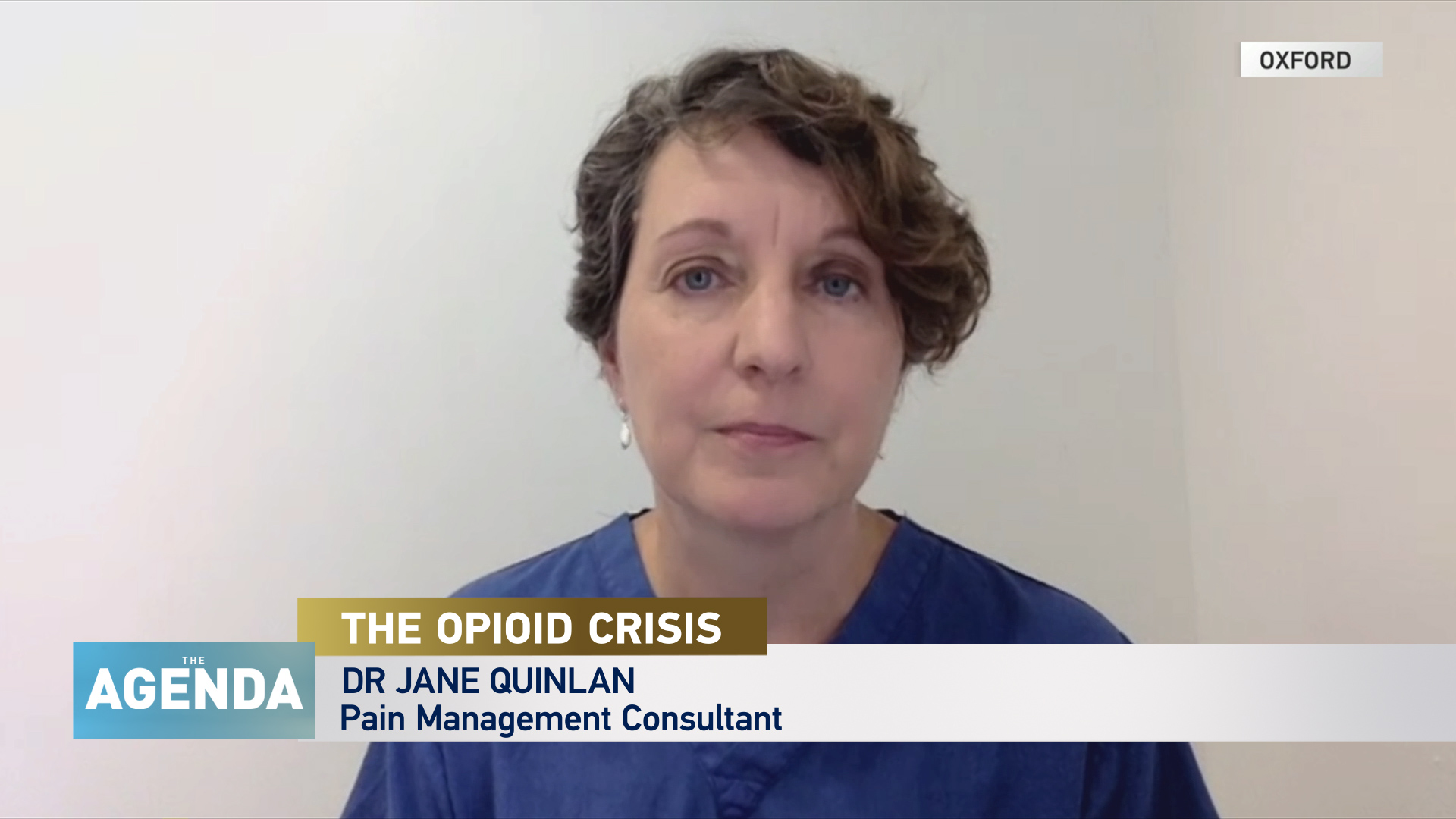03:50

WHAT'S THE ISSUE?
Despite its reputation for causing overdoses and suicides - opioid medication is incredibly valuable when prescribed correctly. However there is currently a lack of understanding about different types of pain and how to treat it.
So why do some people respond well to opioids and others don't? Here Stephen Cole speaks to Dr Jane Quinlan, Pain Management Consultant about the complicated business of managing chronic pain and the right time, if ever, to prescribe opioids.

MEET THE EXPERT
Dr Jane Quinlan is a consultant in anaesthesia and pain management at the Oxford University Hospitals NHS Foundation Trust in the UK. She is also an honorary senior clinical lecturer at the University of Oxford.
Quinlan was a core member of the Opioid Painkiller Dependence Alliance; a collaboration of pain and addiction specialists and patient groups committed to raising awareness of dependence on prescribed opioids.
Quinlan leads a clinic which supports patients in stopping dependency on opioids.

WHAT DOES QUINLAN SAY?
Quinlan's main message is that we need a better understanding of when to prescribe opioids; when used wisely - they are incredibly important.
"One of the main causes of the crisis generally is a lack of understanding about different types of pain," Quinlan tells Stephen.
"Chronic pain is a pain that goes on for more than three months with no clear reason for it," she explains - "no ongoing inflammation, no ongoing tissue damage. That represents a dysfunctional pain system that doesn't respond to opioids."
Quinlan concludes that a major part of this crisis has come from doctors pushing highly-addictive (but ultimately useless) opioid medication on patients with chronic pain.


WHAT'S NEXT?
Quinlan says that boosting the regulation of opioid medication is not necessarily the way forward.
"We need to make sure that opioids remain available to patients who will benefit from them the most," she says, "like patients who have had surgery, trauma, acute pain or pain from cancer."
Looking ahead, it's important that patients with chronic illnesses and long term dysfunction of their pain system should not be started on opioids because it won't ultimately work for them.
"They're very addictive drugs and we need to support them in coming off them safely," Quinlan says.
ALSO ON THE AGENDA:
- How did the rise of prescription pain medication turn into an epidemic of heroin and fentanyl? Stephen speaks to author Patrick Radden Keefe about his new book 'Empire of Pain: The Secret History of the Sackler Dynasty' and digs into whether the pharmaceutical companies manufacturing opioids knew what they were doing.

